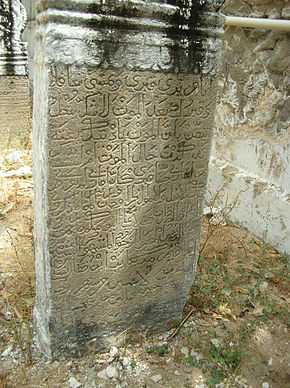Islam in Kilakarai
| Regions with significant populations | |
|---|---|
|
| |
| Languages | |
| Tamil, Arwi | |
| Religion | |
| Islam | |
| Related ethnic groups | |
| Arabs, Tamil Muslim |
The Kilakarai Moors (Tamil: கீழக்கரை முஸ்லிம்கள், Kīḻakkarai muslimkaḷ ?) (commonly referred to as Muslims) are the largest ethnic group in Kilakarai comprising 80% of the towns total population. They are predominantly followers of Islam. The Moors trace their ancestry to Arab and Persian traders mostly from Arabia,Yemen,Iran and some from Egypt who settled in Kilakarai some time between 8th-15th century.[1] The Kilakarai Moors lived primarily as coastal trading and agricultural communities, preserving their Islamic cultural heritage while adopting many Southern Asian customs. During the period of Portuguese colonisation, the Moors suffered widespread persecution.The Kilakarai Moors and the Sri Lankan Moors have many things in common.
Language
The Arabic language brought by the early merchants is no longer spoken, though many Arabic words and phrases are still commonly used. Until the recent past, the Moors employed Arwi as their native language, though this is also extinct as a spoken language. Moors today use Tamil as their primary language with influence from Arabic. Many Arabic and Arabized words exist in the form of Tamil spoken by Kilakarai moors. Among many examples, greetings and blessings are exchanged in Arabic instead of Tamil, such as Assalamu Alaikum instead of Sandhiyum Samadanamum for pant and Jazakallah instead of Nandri.There are also words which are unique to Kilakarai Moors and a few other Tamil Muslim communities such as Laatha for elder-sister, Kaka for elder-brother, Umma for mother and Vappa for father. There are also words derived from Sinhala such as Peengan for plate or cup,Mattapa for terrace. There are also words from Purananuru era such as Aanam for Kulambu and Puliaanam for rasam or soup.
Gallery
See also
- Arwi
- Kilakarai
- The Old Jumma Masjid of Kilakarai
- Tamil Muslim
- Labbay
- Marakkar
